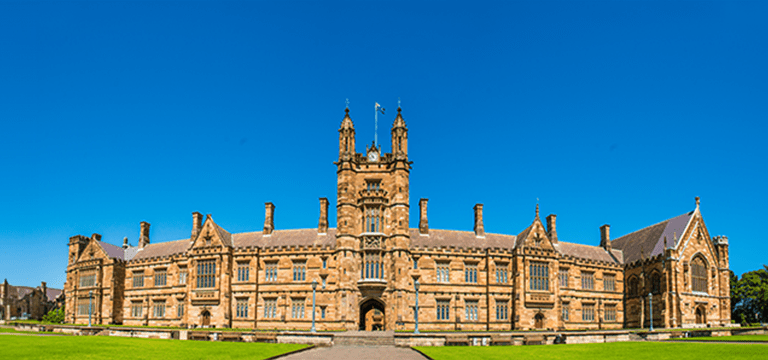

Australia








Educational System in Australia
Australia’s education system is a beacon of excellence globally, attracting students worldwide. Renowned for its world-class universities, innovative teaching methods, and commitment to diversity, Australian education offers a comprehensive and enriching experience. From primary and secondary schooling to tertiary education, the system is characterised by flexibility, quality assurance, and a strong emphasis on industry relevance. With a vibrant multicultural environment, many scholarship opportunities, and a focus on student well-being, Australia has firmly established itself as a premier destination for those seeking academic excellence and a transformative and globally recognised educational journey.
Here are the details regarding the Australian education system:
School Education
The Australian school system comprises primary and secondary education. Primary education generally runs from kindergarten to Year 6, and secondary education covers Years 7 to 12. Education is compulsory for children aged 6 to 17, and the curriculum is set by each state and territory, following national guidelines.
Tertiary Education
Australia has a robust tertiary education system that includes universities, vocational education and training (VET) institutions, and English language schools. Australia has well-known universities that offer a wide range of courses, excellent academic programmes, and prolific research output. The nation is home to forty-three universities.
Vocational Education and Training (VET)
VET institutions offer practical, hands-on training in various fields such as trades, hospitality, business, and technology. TAFE (Technical and Further Education) institutes are prominent vocational education providers.
English Language Schools: Australia is a popular place to study English. Numerous schools and colleges offer English language courses for international students seeking to improve their language skills.
Higher Education
Australian universities are recognised for their high academic standards and world-class research. The country has consistently ranked among the top destinations for international students. The Australian higher education system offers various undergraduate and postgraduate programs across multiple disciplines.
Quality Assurance
The Australian government maintains strict quality assurance standards for education providers through the Tertiary Education Quality and Standards Agency (TEQSA). The Australian Qualifications Framework (AQF) ensures consistency and quality across different levels of education.
Research Opportunities
Australian universities actively research, focusing on innovation and collaboration. Many institutions are globally ranked for their research output. The country attracts international researchers and students interested in contributing to diverse fields of study.
International Students
Australia is a popular destination for international students, with a diverse and inclusive environment. The country has a Student Visa program allowing eligible students to study and work part-time.
Global Recognition
Degrees obtained from Australian institutions are widely recognised and accepted globally, providing students with excellent career prospects.
Quality of Life
Australian cities consistently rank high in quality of life. Combined with a strong education system, makes the country an attractive destination for international students seeking a well-rounded experience.
Australia’s education system is characterised by its commitment to quality, diversity, and innovation. It is preferred for students seeking a high-calibre education in a welcoming and culturally rich environment.
Why is Australia Globally Recognised as a World-Class Education System?
1. Pathways to Higher Education
The Australian education system provides flexible pathways to higher education. Students can choose from various entry points, including vocational qualifications, diplomas, and foundation studies, allowing for a smooth transition to university programs.
2. Scholarships and Financial Assistance
Australian universities and government institutions offer a range of scholarships to both domestic and international students based on academic merit, financial need, and other criteria. This support enhances accessibility and encourages a diverse student population.
3. Innovative Teaching Methods
Australian universities employ innovative teaching methods, strongly emphasising research-led education. Students benefit from interactive learning, practical applications of theoretical knowledge, and opportunities for internships and industry placements.
4. Cultural Diversity and Global Perspectives
The Australian education system celebrates cultural diversity, fostering an inclusive environment for students from various backgrounds. Exposure to global perspectives is embedded in curricula, preparing students for an interconnected world.
5. Industry-Relevant Courses
The curriculum in Australian universities is designed to meet industry needs. Courses often include practical components, collaboration with industry partners, and opportunities for work-integrated learning, ensuring graduates are well-prepared for the workforce.
6. Quality Assurance and Accreditation
The Australian government maintains a rigorous quality assurance framework for higher education. Institutions and courses must meet strict accreditation standards set by organisations such as TEQSA, ensuring a high standard of education.
7. Graduate Employability Australian universities prioritise equipping students with the skills and knowledge necessary for success in the job market. Many institutions have strong connections with industry partners, facilitating internships, job placements, and student networking opportunities.
8. Student Support Services
Institutions in Australia provide comprehensive support services, including academic counselling, career guidance, health and well-being programs, and multicultural support, ensuring a holistic approach to student welfare.
Educational System in Australia
Australia’s education system is a beacon of excellence globally, attracting students worldwide. Renowned for its world-class universities, innovative teaching methods, and commitment to diversity, Australian education offers a comprehensive and enriching experience. From primary and secondary schooling to tertiary education, the system is characterised by flexibility, quality assurance, and a strong emphasis on industry relevance. With a vibrant multicultural environment, many scholarship opportunities, and a focus on student well-being, Australia has firmly established itself as a premier destination for those seeking academic excellence and a transformative and globally recognised educational journey.
Here are the details regarding the Australian education system:
School Education
The Australian school system comprises primary and secondary education. Primary education generally runs from kindergarten to Year 6, and secondary education covers Years 7 to 12. Education is compulsory for children aged 6 to 17, and the curriculum is set by each state and territory, following national guidelines.
Tertiary Education
Australia has a robust tertiary education system that includes universities, vocational education and training (VET) institutions, and English language schools. Australia has well-known universities that offer a wide range of courses, excellent academic programmes, and prolific research output. The nation is home to forty-three universities.
Vocational Education and Training (VET)
VET institutions offer practical, hands-on training in various fields such as trades, hospitality, business, and technology. TAFE (Technical and Further Education) institutes are prominent vocational education providers.
English Language Schools: Australia is a popular place to study English. Numerous schools and colleges offer English language courses for international students seeking to improve their language skills.
Higher Education
Australian universities are recognised for their high academic standards and world-class research. The country has consistently ranked among the top destinations for international students. The Australian higher education system offers various undergraduate and postgraduate programs across multiple disciplines.
Quality Assurance
The Australian government maintains strict quality assurance standards for education providers through the Tertiary Education Quality and Standards Agency (TEQSA). The Australian Qualifications Framework (AQF) ensures consistency and quality across different levels of education.
Research Opportunities
Australian universities actively research, focusing on innovation and collaboration. Many institutions are globally ranked for their research output. The country attracts international researchers and students interested in contributing to diverse fields of study.
International Students
Australia is a popular destination for international students, with a diverse and inclusive environment. The country has a Student Visa program allowing eligible students to study and work part-time.
Global Recognition
Degrees obtained from Australian institutions are widely recognised and accepted globally, providing students with excellent career prospects.
Quality of Life
Australian cities consistently rank high in quality of life. Combined with a strong education system, makes the country an attractive destination for international students seeking a well-rounded experience.
Australia’s education system is characterised by its commitment to quality, diversity, and innovation. It is preferred for students seeking a high-calibre education in a welcoming and culturally rich environment.
Why is Australia Globally Recognised as a World-Class Education System?
1. Pathways to Higher Education
The Australian education system provides flexible pathways to higher education. Students can choose from various entry points, including vocational qualifications, diplomas, and foundation studies, allowing for a smooth transition to university programs.
2. Scholarships and Financial Assistance
Australian universities and government institutions offer a range of scholarships to both domestic and international students based on academic merit, financial need, and other criteria. This support enhances accessibility and encourages a diverse student population.
3. Innovative Teaching Methods
Australian universities employ innovative teaching methods, strongly emphasising research-led education. Students benefit from interactive learning, practical applications of theoretical knowledge, and opportunities for internships and industry placements.
4. Cultural Diversity and Global Perspectives
The Australian education system celebrates cultural diversity, fostering an inclusive environment for students from various backgrounds. Exposure to global perspectives is embedded in curricula, preparing students for an interconnected world.
5. Industry-Relevant Courses
The curriculum in Australian universities is designed to meet industry needs. Courses often include practical components, collaboration with industry partners, and opportunities for work-integrated learning, ensuring graduates are well-prepared for the workforce.
6. Quality Assurance and Accreditation
The Australian government maintains a rigorous quality assurance framework for higher education. Institutions and courses must meet strict accreditation standards set by organisations such as TEQSA, ensuring a high standard of education.
7. Graduate Employability Australian universities prioritise equipping students with the skills and knowledge necessary for success in the job market. Many institutions have strong connections with industry partners, facilitating internships, job placements, and student networking opportunities.
8. Student Support Services
Institutions in Australia provide comprehensive support services, including academic counselling, career guidance, health and well-being programs, and multicultural support, ensuring a holistic approach to student welfare.
Australia









